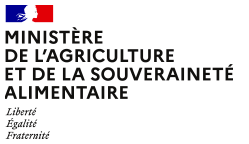
Welcome to Toulouse ! ENTER STudy Days 25-27 March 2024
The Land-Based Teacher (Trainer) as a Change Agent
ENTER (European network of learning and teaching agriculture and rural development) is an association of several European higher education institutions that train teachers and trainers in secondary and higher agricultural technical education, with the aim of promoting scientific and educational cooperation.
The ENTER network is offering three days of exchanges on the key role of teachers in tackling the issues of biodiversity and climate change in education, to be held at ENSFEA from March 25 to 27
These meetings will welcome representatives of the network’s member institutions, and encourage the players present to reflect jointly on the common issues at European level. This is also an opportunity to forge links with new European partners with a view to future cooperation projects.
Subject
The Land-Based Teacher (Trainer) as a Change Agent
Tackling biodiversity and climate change in education
Every day we are confronted with the consequences of climate change and declining biodiversity. We often hold sectors responsible for what happens and look for quick solutions. Tense debates sometimes seem to leave little space for nuances and critical constructive thinking. At the same time, immense challenges lie ahead for the next generations. Designing and implementing appropriate teaching seems to be key to dealing with complex issues which in turn generates quality education. To support these facilitators, the role of the teacher (trainer) is indispensable. Teacher trainers are often also change agents!
Young people want to contribute to a better world, but it is important that they can work on concrete actions that lead to visible results. Others are overwhelmed by the environmental and climate issues they face. That can lead to eco-anxiety: the strain of such challenges can give rise to mental health problems.
During the ENTER Study Days 2024, we will focus on didactic and pedagogical challenges and directions that can help to make a difference together. We will discuss the importance of interdisciplinary collaboration, the power of diversity, inclusion, responding to regional and local agricultural and environmental needs and connecting theory with practice and vice versa.
Let’s further shape learning for sustainable development! Individually we can do a lot, but together we achieve much more on a European level.
Program
(1) Ideas of projects : proposals can be done in the contribution call form on internationalised courses within ENTER network : students mobilities, BIP, joint Master degrees…
Workshops
14h-15h30
1: Workshop – Futures Education : some benchmarks
In the face of uncertainty, many visions of the future are being expressed in our societies, both in scientific productions and political debates, and in the educational community.
In this context, which can be anxiety-provoking for students, we need to learn how to integrate futures thinking and build imaginary visions of possible futures for the ecological transition.
Nicolas Hervé, a professor in science education and socially acute questions, will be proposing some ideas and teaching approaches to enable students to analyse, construct and debate images of probable, possible and, above all, desirable futures.
The workshop will include presentations and group discussions on teaching methods.
Materiel: video projector, paperboard, feutres
2: Workshop – Agrochallenges: The agro-ecology game
AGROCHALLENGES is a card game consisting of 21 problem cards and 21 solution cards. Through different game modes (competitive, cooperative, strategic), share your knowledge and compare your ideas in the form of a debate, around the economic, environmental, social, food and territorial issues of the agroecological transition.The game takes a broad approach to the concept of agroecology, integrating different dimensions (agronomic, environmental, economic, social, etc.) and scales (local and global).
It has been designed as a stage in a longer teaching sequence, allowing players to work on their representations, to acquire some knowledge and definitions, and to discover the systemic approach to agroecology. It encourages players to get involved, and encourages debate and curiosity.
3: Tackling biodiversity and climate change in formal and informal education: promoting scientific literacy through citizen science
Join us for a workshop in which we will discuss the role that citizen science projects can play to promote scientific literacy in both formal and informal education, and the challenges faced by both citizen science project initiators and the educational community in general.
Alexandra Magro and Joel White, ENSFEA
16h-17h30
4: Workshop “Rewilding: monitoring biodiversity in school yards” (by Marlies Beukenkamp, Jetske de Boer, Saskia Ven)
Join our workshop on biodiversity restoration in education, where we will experience practical monitoring techniques. Explore the power of Citizen Science as a foundation for engaging students in discussions on systems thinking. Let’s collaborate towards a greener, more biodiverse future together!
5: Unlocking the future: Bridging perspectives on complex themes through dialogue
Join us for a workshop designed to facilitate understanding and collaboration among individuals with diverse interests and perspectives. Together, we will explore practical tools for fostering dialogue and building bridges across divides when envisioning a sustainable future.
Alette Los, Sandra van der Wielen, Hinno Bel Teacher education, intercultural communication and international affairs
Aeres University of Applied Sciences
• Enter members
• Higher education institutions
• Education professionals (Inspé, EPLEFPA…)




